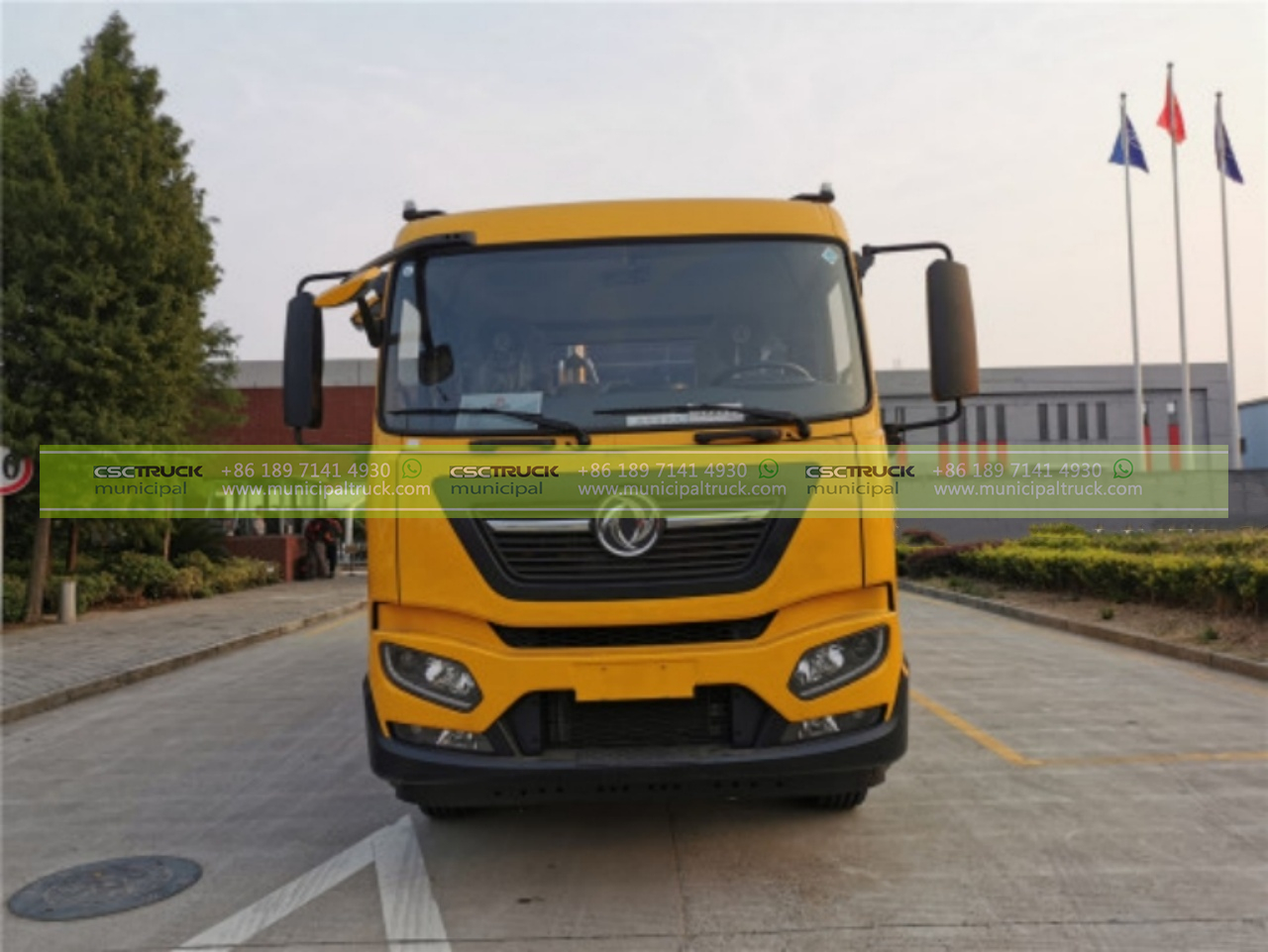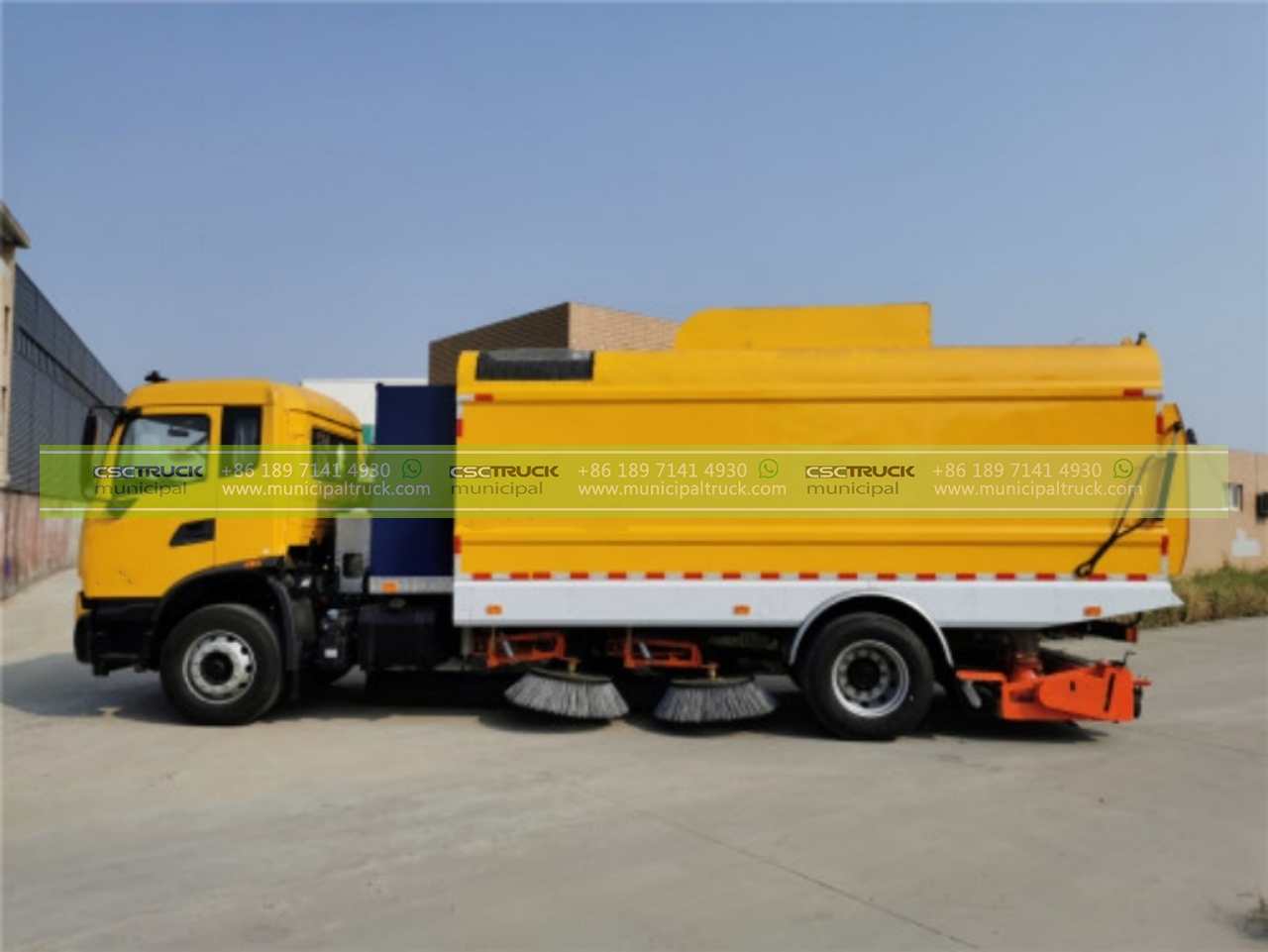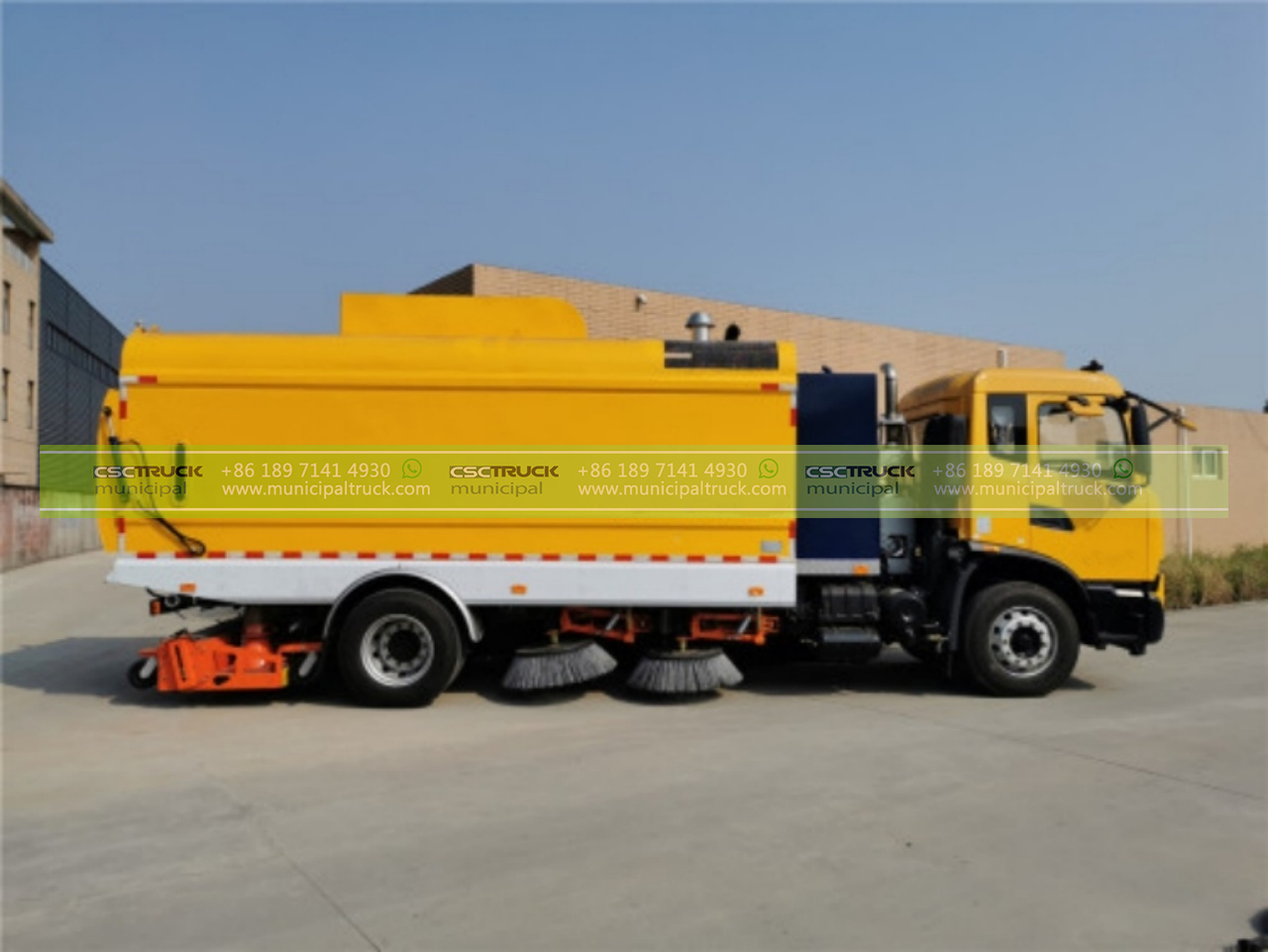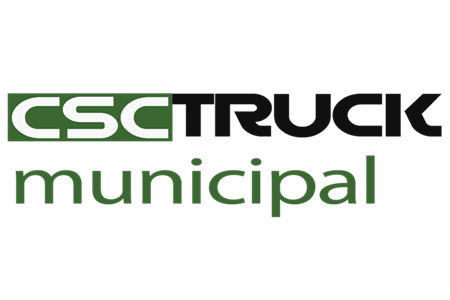Airports are bustling hubs of activity, with countless flights taking off and landing every day. Keeping these sprawling facilities clean and safe is of utmost importance, and airport sweeper trucks play a crucial role in this endeavor. These specialized vehicles are responsible for keeping runways, taxiways, and other critical areas free from debris, which not only enhances the overall safety of the airport but also contributes to its aesthetic appeal. To ensure the efficient operation of these sweepers, it’s essential to have a robust maintenance regimen in place. In this article, we will explore the key maintenance tips for airport sweeper trucks.
Why Airport Sweeper Truck Maintenance Matters
Airport sweeper trucks are subjected to a demanding workload. They operate in a unique environment, dealing with a wide range of debris, from litter to hazardous materials. Maintaining these vehicles is vital for several reasons:
1. Safety
Safety is paramount in the aviation industry, and debris on runways or taxiways can pose significant risks. Maintained sweeper trucks to ensure that the airport surfaces were clean and safe, reducing the risk of foreign object damage (FOD) to aircraft.
2. Efficiency
Well-maintained sweepers are more efficient in their operations. They can cover larger areas in less time, saving valuable resources for the airport.
3. Cost Savings
Proactive maintenance reduces the likelihood of costly breakdowns and repairs. Regularly serviced sweeper trucks tend to have longer lifespans, reducing the need for frequent replacements.
4. Environmental Impact
Airports are increasingly striving for sustainability. A well-maintained sweeper truck is more fuel-efficient and produces fewer emissions, contributing to environmental goals.

Key Maintenance Tips for Airport Sweeper Trucks
Let’s delve into the essential maintenance tips to keep airport sweeper trucks in top working condition:
1. Regular Inspections
Routine inspections are the foundation of a comprehensive maintenance program. Regularly inspect the sweeper truck for any signs of wear and tear, damage, or malfunction. Pay attention to the brushes, belts, hydraulic systems, and the vacuum system.
2. Filter Maintenance
The sweeper truck‘s filter system is critical for collecting debris and maintaining air quality. Regularly check and clean or replace the filters as needed to ensure optimal performance.
3. Brush Replacement
The brushes on the sweeper truck are essential for debris collection. Inspect the brushes for signs of wear, and replace them when necessary to maintain effective sweeping.
4. Hydraulic System Care
The hydraulic system is the heart of the sweeper truck, responsible for various functions like lifting the brushes and controlling the vacuum. Regularly check hydraulic fluid levels, and look for any signs of leakage or damage. Maintain the hydraulic system according to the manufacturer’s recommendations.
5. Electrical System
Ensure that all electrical components, including lights, sensors, and controls, are in good working order. Any malfunctions in the electrical system can hinder the sweeper truck‘s efficiency and safety.
6. Tires and Suspension
Check the tires for proper inflation and wear. Maintaining the tire pressure and alignment is crucial for the sweeper’s stability and performance. Additionally, inspect the suspension system to ensure a smooth ride and prevent damage to the vehicle.
7. Lubrication
Regularly lubricate moving parts to prevent excessive friction and wear. Follow the manufacturer’s guidelines for the type of lubricants and the recommended intervals for lubrication.
8. Cleaning the Waste Hopper
The waste hopper, where collected debris is stored, should be regularly cleaned and sanitized. Neglecting this can lead to foul odors, corrosion, and potential contamination issues.
9. Training and Staff Education
Proper maintenance begins with the operators. Ensure that the sweeper truck operators are well-trained and educated on the importance of maintenance and how to spot early signs of issues.
10. Keep Records
Maintain a detailed record of all maintenance and repair activities. This will help track the sweeper truck‘s history and predict when certain components may require replacement.
11. Preventive Maintenance Schedule
Create a preventive maintenance schedule that outlines when specific maintenance tasks should be performed. This schedule should be based on the manufacturer’s recommendations and the sweeper truck‘s usage patterns.
12. Safety Measures
Incorporate safety measures into your maintenance routine. Safety checks should be conducted before each operation, and any safety concerns should be promptly addressed.
13. Environmental Considerations
Dispose of waste and hazardous materials properly, following all environmental regulations. Sweeper trucks often collect potentially harmful substances, so it’s crucial to handle them responsibly.

The Role of Professional Maintenance Services
While routine maintenance tasks can be performed in-house, it’s essential to have a professional maintenance service provider for more complex maintenance and repairs. These experts have the knowledge, tools, and experience to keep your sweeper trucks in optimal condition. They can also provide guidance on best practices for maintenance and help you adhere to manufacturer warranties.

Conclusion
Airport sweeper trucks are unsung heroes in maintaining the safety and cleanliness of airports. Proper maintenance is key to their efficient operation, ensuring runways and taxiways are free from debris. It not only enhances safety but also contributes to the overall efficiency and environmental sustainability of the airport.
By following these maintenance tips and establishing a robust maintenance program, airport authorities can make sure their sweeper trucks continue to perform reliably and cost-effectively. Prioritizing maintenance is not just an investment in the equipment; it’s an investment in the safety and functionality of the entire airport.
Contact us for this municipal truck or similar trucks: [email protected] Call us or What's APP us: +86 189 4292 3930






